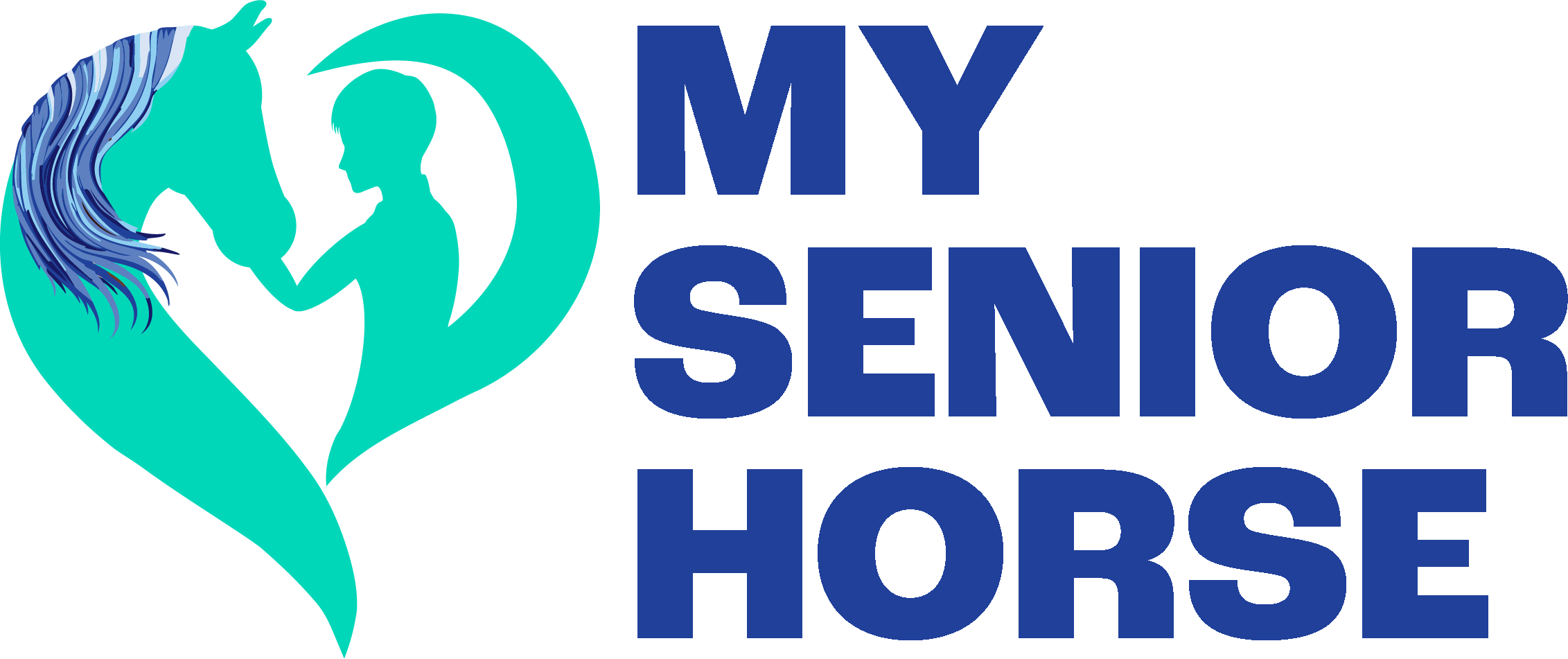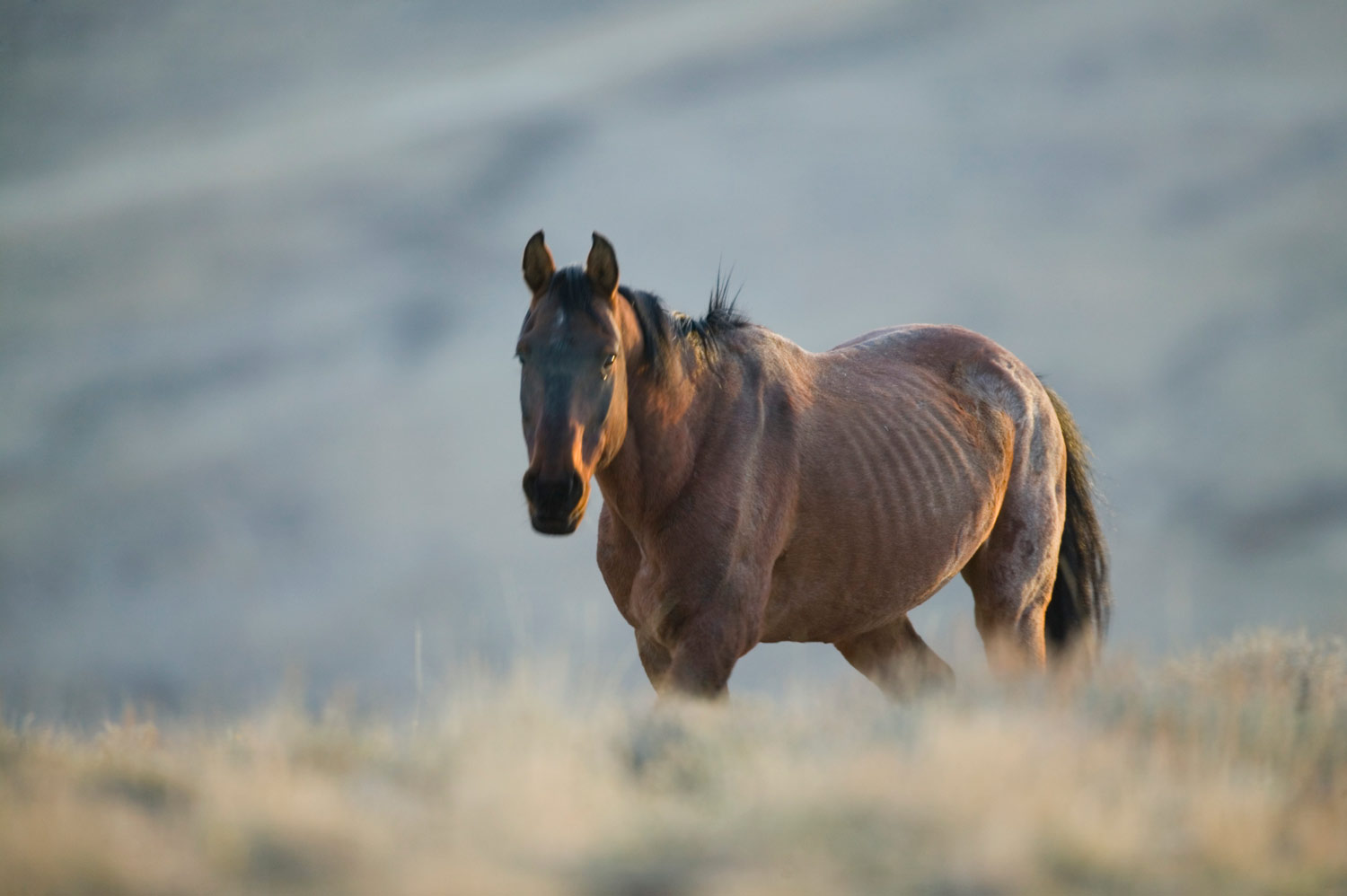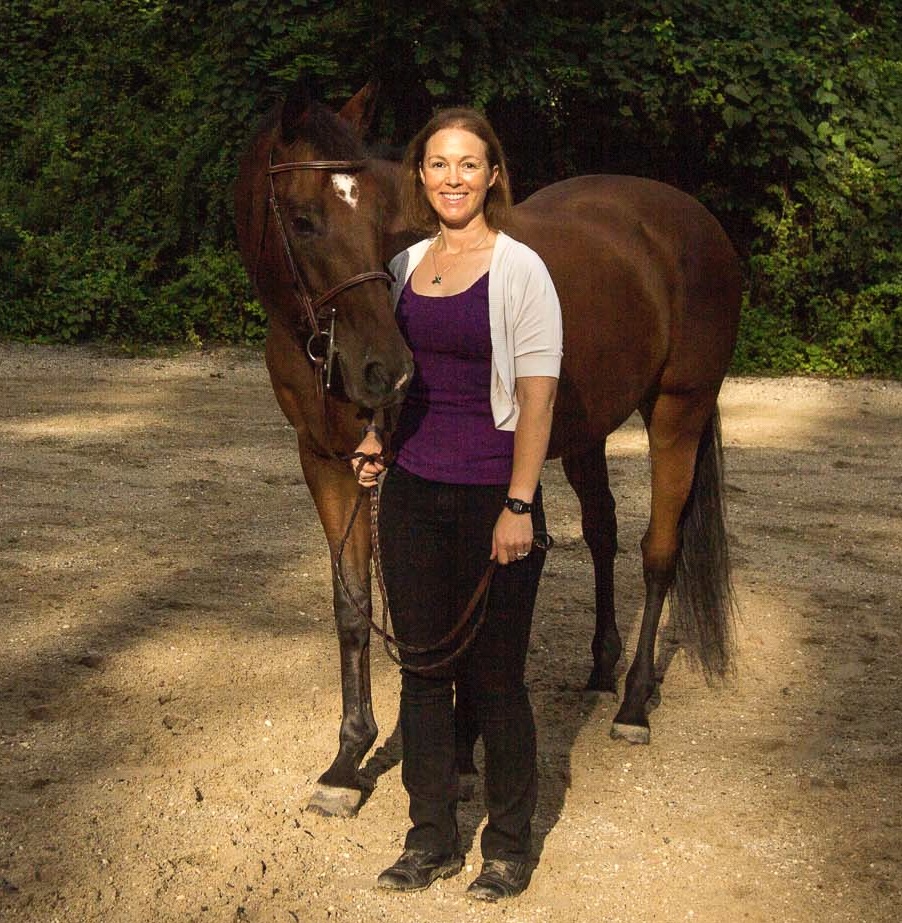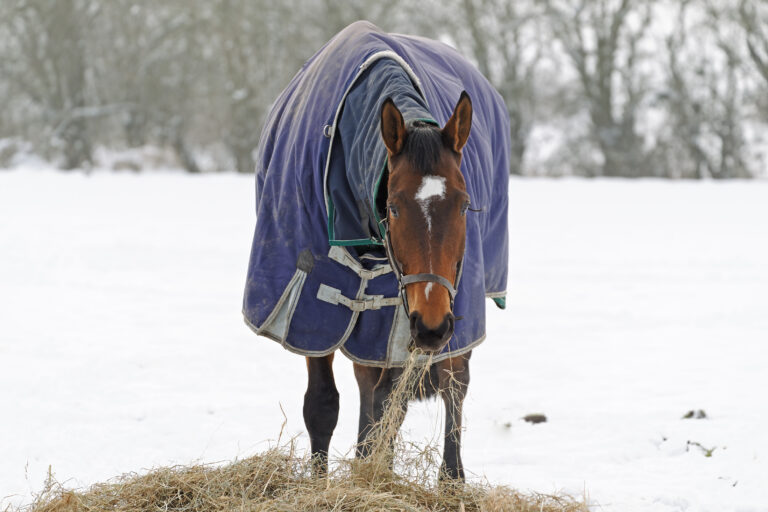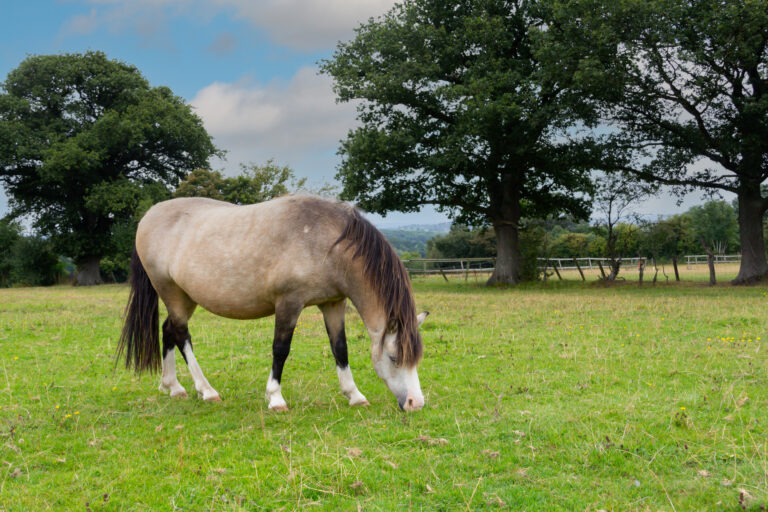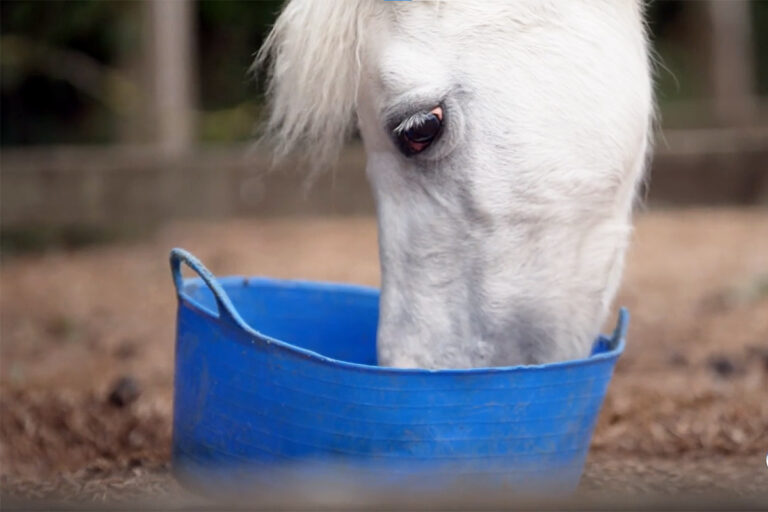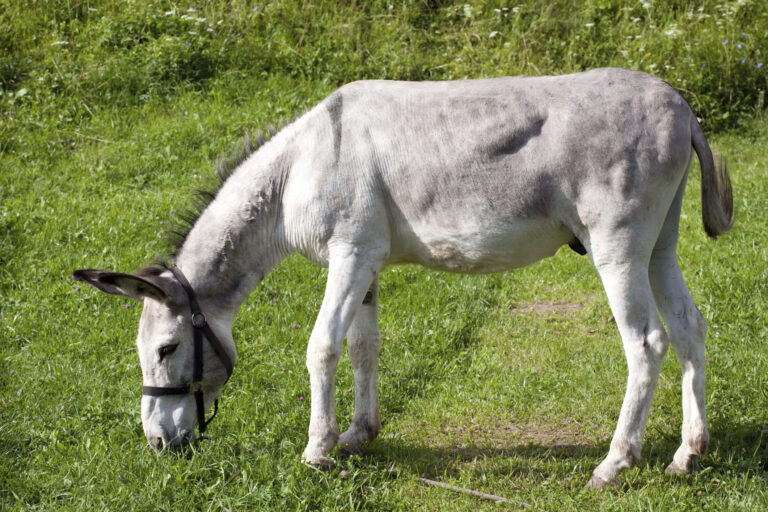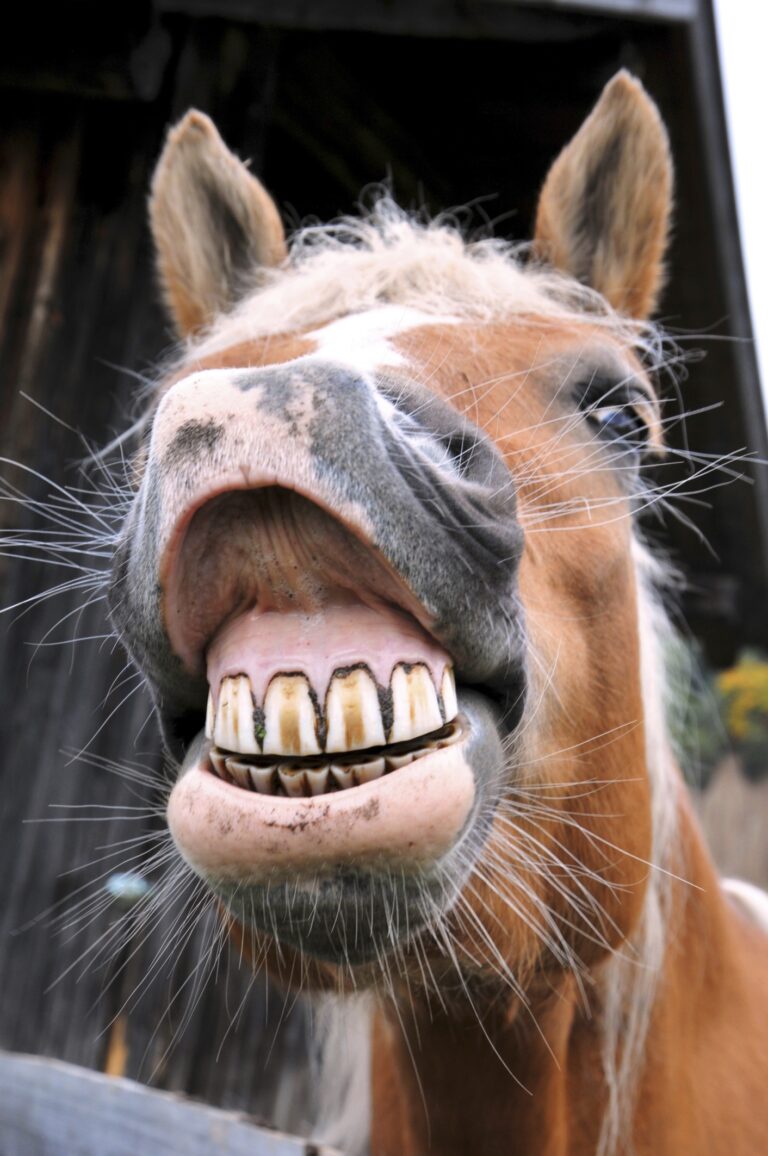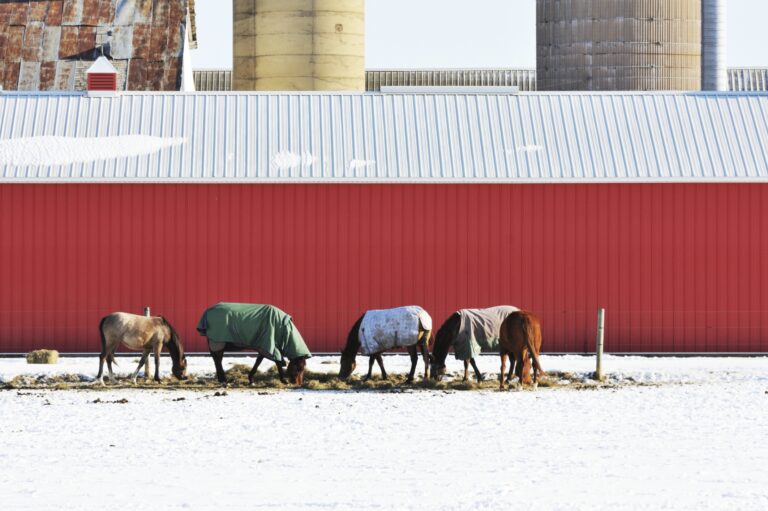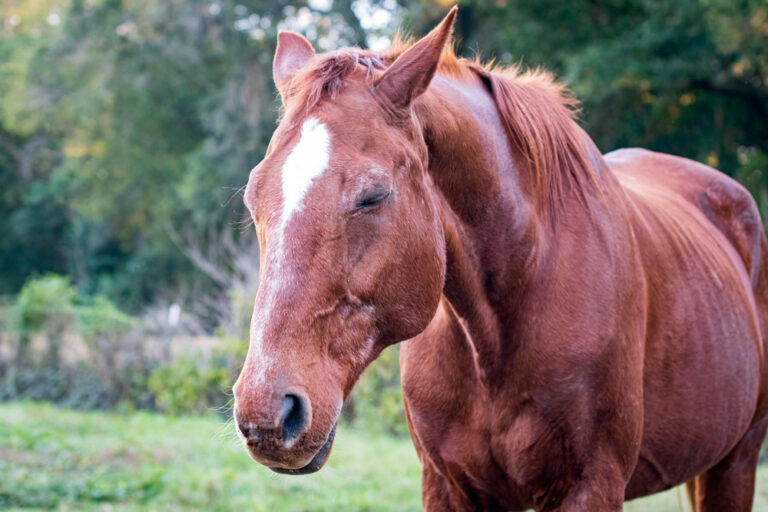There’s a myth that old horses lose weight and get skinny, and that’s just the way it is. Nothing could be further from the truth! Whether an equid loses weight suddenly or over a period of time, it is very important to elucidate the cause of weight loss.
Below, we are going to cover common causes of weight loss in senior equids.
Dental Concerns
Equids have hypsodont teeth. This means their teeth continually erupt during their lifetimes and are worn down by constantly chewing forage. However, in their later years, the teeth eventually stop erupting and can become worn, loose, or cracked. This makes it harder for horses to properly chew, swallow, and digest food.
A hallmark of poor chewing ability is the hay quid. This is a balled-up wad of forage that is dropped on the ground after a horse tries to chew it. If the senior horse is turned out with others, it is possible that pasturemates eat the dropped forage quids. So, owners should ideally take some time to observe their senior horses eating hay or grass.
Older horses should be seen by a veterinarian who is skilled in treating equine teeth or a qualified equine dentist once or more likely twice per year. The frequency depends on the horse’s individual needs.
Herd Dynamics
Many horses are turned out in groups where they establish their own social order. Bolder herd members usually end up higher in the ranks and less aggressive ones lower down. Keep in mind that this is a dynamic process and not necessarily a constant or linear ranking system.
An aging horse might slip down the ranks and get pushed away from food sources that are available to the group. As a result, they might consume less than what they need or only get the leftovers.
For these situations, you can move the horse to another herd or feed the horse in a stall or area where other horses cannot access his food. It often helps to keep another horse nearby to reduce stress while allowing the older animal to receive its fair share of feed.
Pain
A horse in pain usually will not want to eat. Pain isn’t limited to lameness. It could be discomfort in the neck or back, making eating off the ground quite uncomfortable. Offering food at chest height might make the horse more comfortable during mealtime.
Jaw pain could be related to dental issues, arthritis, or pain in the temporomandibular joint (TMJ), where the upper and lower jaws connect. A veterinarian can help isolate the source of pain. Careful observation of the animal’s behavior by the owner or caretaker can be helpful in determining the source of discomfort.
Illness/Medication
When a horse doesn’t feel well, its appetite can decline. Certain medications to treat medical conditions can also affect appetite.
A horse that suddenly stops eating should be evaluated by a veterinarian. Be sure to know your horse’s normal body temperature, pulse rate, and respiration rate so you can relay this data to the vet on the phone if necessary.
Treatment for illness might need to be administered to combat any sickness that might be present. If medications are already being given, they might need to be adjusted.
Misunderstanding of Dietary Needs
Occasionally, understanding why a horse is losing weight is as simple as understanding its dietary needs. Those needs can change over time.
Horse owners sometimes do not feed a complimentary feed according to the manufacturer’s directions, and as a result the horse might be underfed.
Similarly, horses having trouble keeping weight on might just need more calories. That might mean increasing the amount or type (if appropriate) of forage being provided. It also could mean possibly including a vegetable oil/fat supplement.
Fat has twice the calories of a carbohydrate and does not elicit an insulin response. Thus, fat can be a very useful tool for adding calories without adding a lot of bulk to the ration, which is especially important in animals that are already being fed close to their appetite.
As with any diet change, fat should be added to the diet slowly to allow the digestive system to adjust. Introduce the horse to a novel addition to the diet slowly, which helps encourage consumption.
An equine nutritionist can help balance the diet and ensure that calories and nutrients are sufficient to support the horse’s needs.
Closing Thoughts and Summary
A good rule of thumb is to weigh your horse regularly (for example, the first day of each month, or each time the farrier visits). A simple weight tape can help you measure change and catch changes in weight before those changes become critical. Using the Muscle Atrophy Scoring system is another way to monitor changes in skeletal muscle mass. Removing blankets or rugs in colder months and using body condition scoring to evaluate fat mass is an important task on a regular basis. Take photos from each side (profile) as well as from the front and back to keep for records, but don’t rely on photos alone to provide all the details with respect to body condition. Measurements can show change before the human eye picks it up, and provide objective data that can be tracked over time.
Observe behavior, and note any signs of pain or activity that seems unusual. Know your horse’s normal resting body temperature, heart rate and respiration rates; ask your vet to show you how to take these measurements if you don’t know how. Keeping such records can help horse owners catch a change in weight (or overall health) before it becomes too severe, and will also be an early signal to involve a veterinarian and nutritionist.
Further Reading
- Feeding Adult and Senior Horses. Blanchard, G. and Liburt, N.R. 2023. In: Remillard, R. (ed.) Equine Clinical Nutrition, 2nd Edition. pp.307 – 322.
- Nutritional considerations for aged horses. Harris, P. and Ralston S.L. 2013. In: Geor, R.J.; Harris, P.; Coenen M. (Eds.) Equine Clinical and Applied Nutrition, pp. 289 – 303. Saunders Elsevier, London, UK.
- Development and evaluation of a Muscle Atrophy Scoring System (MASS) for horses. Herbst, A.C.; Johnson, M.G., Gammons, H.; Reedy, S.E.; Urschel, K.L.; Harris, P.A.; Adams, A.A. 2022. Journal of Equine Veterinary Science. Vol. 110.
- Nutrition considerations for the aged horse. Jarvis, N.; Paradis, M. R.; and Harris, P. (2019), Equine Veterinary Education 31(2) 102-110.
- Measuring Temperature, Pulse & Respiration (TPR): What’s normal for my horse? Liburt, N.R.; Malinowski, K.; Williams, C. 2016. Rutgers University Equine Science Center and Rutgers Cooperative Extension, Fact Sheet # FS1262.
- Tips on Feeding Older Horses With Dental Issues. Patricia A. Harris, MA, PhD, VetMB, DipECVCN, MRCVS. MySeniorHorse.com
- Equine Appetite Loss. MySeniorHorse.com
Sign up for My Senior Horse’s FREE newsletter to get the latest information about equids 15 years and older delivered straight to your inbox!
-
View all posts
Nettie Liburt, MS, PhD, PAS, earned her Master's of Science and PhD in Animal Science (Equine Exercise Physiology and Nutrition) from Rutgers University studying with Drs. McKeever and Malinowski. Her research focused on the effects of age and exercise training on endocrine control of the stress response and glucose metabolism. She has authored or co-authored several scientific articles, including a chapter on feeding and care of the adult and senior horse in the Second Edition of the textbook, Equine Clinical Nutrition. She is an active member of the Equine Science Society and is a registered Professional Animal Scientist. This article was written while she was employed by Mars.
